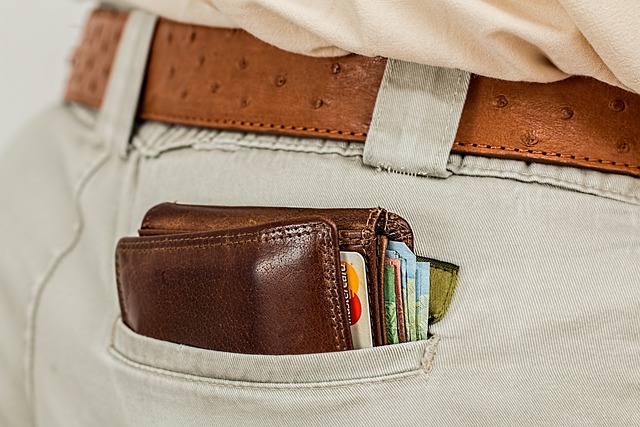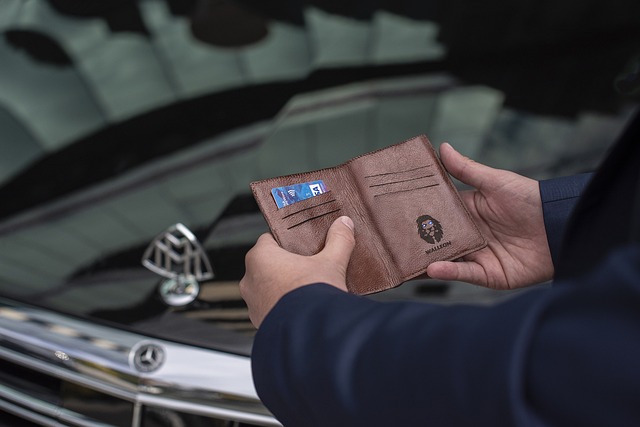Understanding Crypto Wallets
Author: Jameson Richman Expert
Published On: 2025-03-23
Prepared by Jameson Richman and our team of experts with over a decade of experience in cryptocurrency and digital asset analysis. Learn more about us.
In the rapidly evolving world of digital currencies, understanding crypto wallets is essential for anyone looking to invest or transact in cryptocurrencies. A crypto wallet is a digital tool that allows users to store, send, and receive cryptocurrencies securely. This article will explore the different types of crypto wallets, their functionalities, and how to choose the right one for your needs, all while ensuring you have the necessary information to navigate the crypto landscape effectively.

What is a Crypto Wallet?
A crypto wallet is a software program or hardware device that enables users to manage their cryptocurrency holdings. Unlike traditional wallets that hold physical cash, crypto wallets store the public and private keys necessary to conduct transactions on the blockchain. The public key is akin to your bank account number, while the private key is like your PIN; it must be kept secure to prevent unauthorized access to your funds.
Types of Crypto Wallets
There are several types of crypto wallets, each with its own advantages and disadvantages. Understanding these can help you make an informed decision on which wallet to use.
1. Hot Wallets
Hot wallets are connected to the internet, making them convenient for frequent transactions. They are typically offered by exchanges and are user-friendly, allowing for quick access to your funds. However, their connection to the internet makes them more vulnerable to hacking. Examples include:
- Web wallets (like those provided by exchanges such as Binance and Bybit)
- Mobile wallets (apps on smartphones)
- Desktop wallets (software installed on your computer)
2. Cold Wallets
Cold wallets, on the other hand, are offline storage solutions that provide enhanced security against online threats. They are ideal for long-term storage of cryptocurrencies. Types of cold wallets include:
- Hardware wallets (physical devices like Ledger and Trezor)
- Paper wallets (printed QR codes and keys)
Choosing the Right Crypto Wallet
When selecting a crypto wallet, consider the following factors:
1. Security
Security should be your top priority. Look for wallets that offer two-factor authentication, encryption, and backup options. Hardware wallets are generally considered the most secure option.
2. User Experience
The wallet should be easy to use, especially if you are new to cryptocurrencies. A user-friendly interface can make a significant difference in your experience.
3. Supported Cryptocurrencies
Ensure that the wallet supports the cryptocurrencies you plan to hold. Some wallets only support major coins like Bitcoin and Ethereum, while others may support a wider range of altcoins.
4. Backup and Recovery Options
Choose a wallet that provides robust backup and recovery options. This is crucial in case you lose access to your wallet or your device fails.

Popular Crypto Wallets
Here are some of the most popular crypto wallets available today:
1. Binance Wallet
Binance offers a web wallet that is integrated with its exchange platform. It provides a seamless experience for trading and managing your crypto assets. You can register for a Binance account here.
2. Bybit Wallet
Bybit is another popular exchange that provides a user-friendly wallet. It is known for its security features and ease of use. You can sign up for Bybit here.
3. MEXC Wallet
MEXC offers an inviting platform for trading and storing cryptocurrencies. The wallet is designed for both beginners and experienced traders. You can create an account on MEXC here.
4. Bitget Wallet
Bitget is known for its derivatives trading and provides a secure wallet for users. You can register for Bitget here.
Best Practices for Using Crypto Wallets
To ensure the safety of your cryptocurrencies, follow these best practices:
1. Keep Your Private Keys Secure
Your private keys are the most critical aspect of your crypto wallet. Never share them with anyone and store them in a secure location.
2. Use Two-Factor Authentication
Enable two-factor authentication (2FA) on your wallet and exchange accounts to add an extra layer of security.
3. Regularly Update Your Software
Keep your wallet software updated to protect against vulnerabilities and exploits.
4. Be Wary of Phishing Scams
Always double-check URLs and be cautious of unsolicited emails or messages asking for your wallet information.
Conclusion
Understanding crypto wallets is crucial for anyone looking to engage with cryptocurrencies. By choosing the right wallet and following best practices, you can safeguard your digital assets and enjoy a seamless crypto experience. Whether you opt for a hot wallet for convenience or a cold wallet for security, the key is to stay informed and vigilant in this dynamic market.